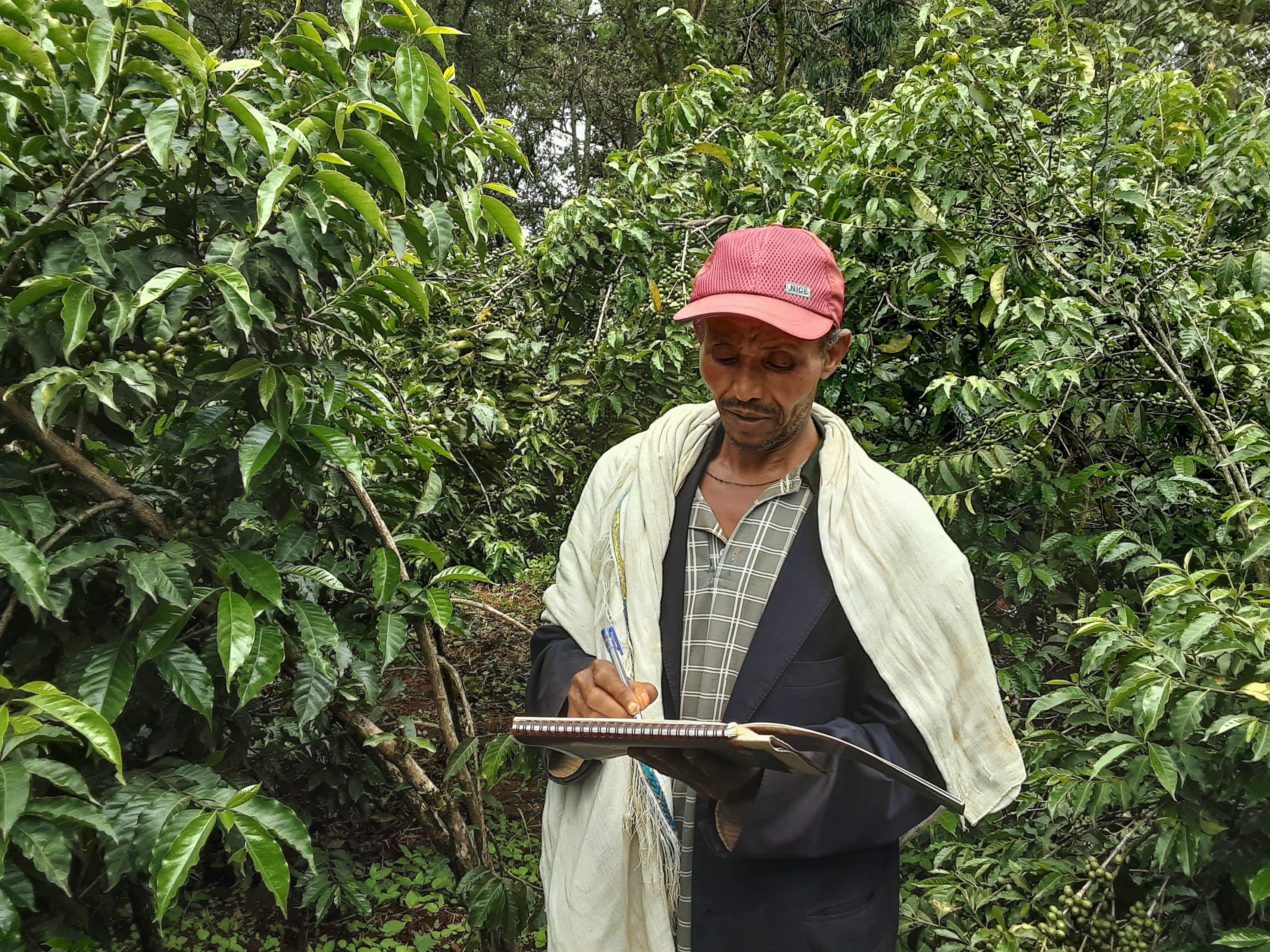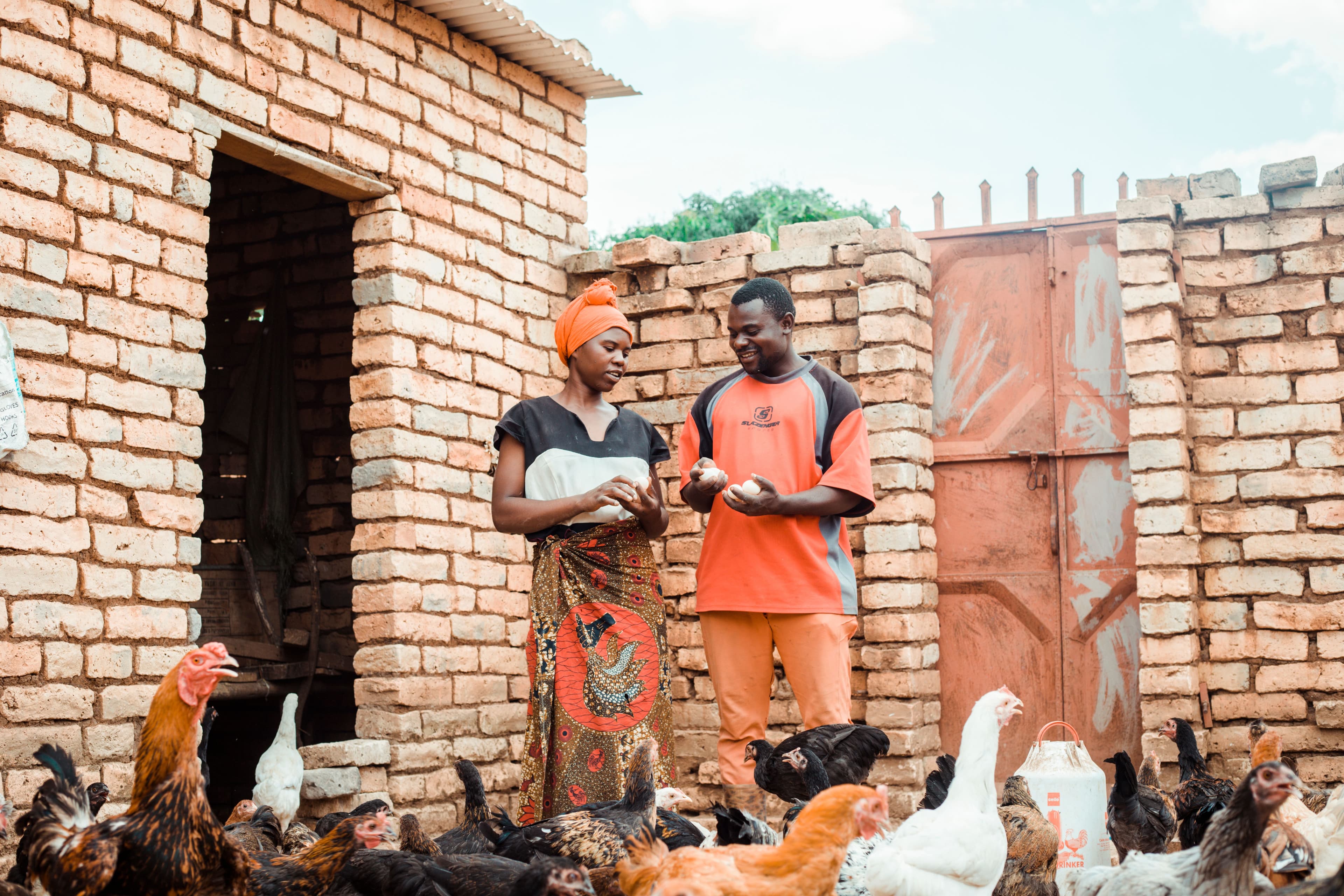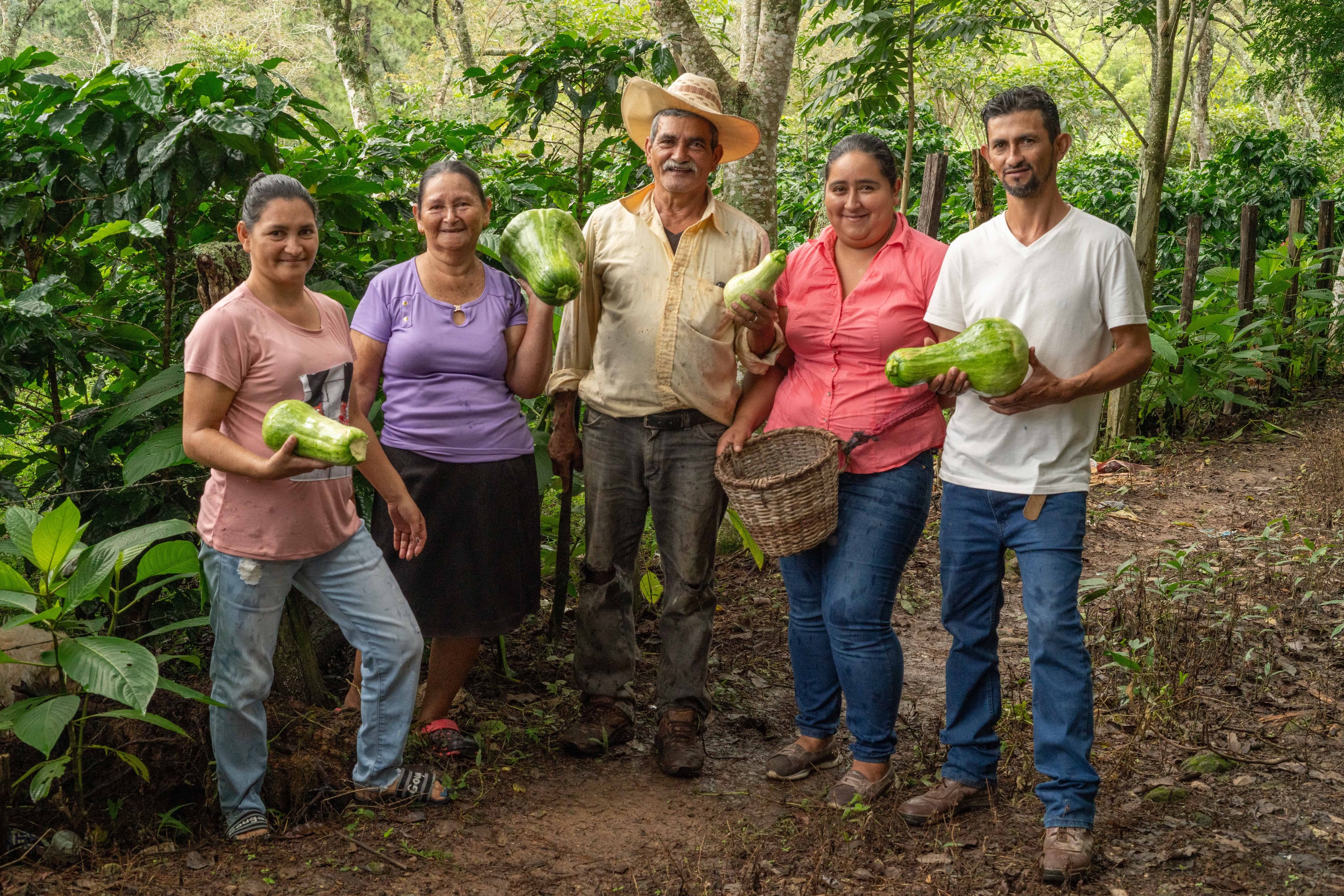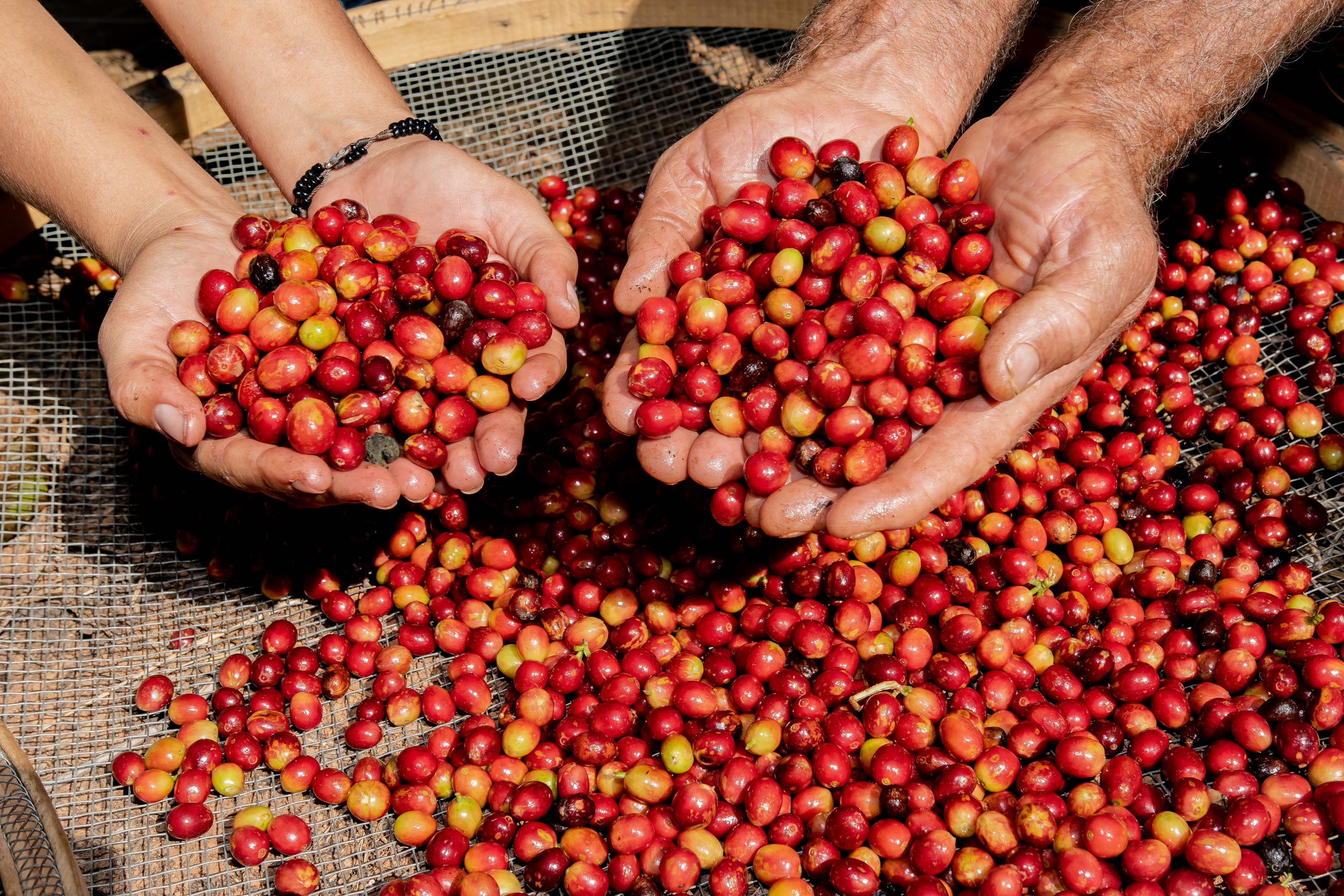
Sowing Seeds of Change: The Resilience Journey of Jali and Agnes
Nestled in the southern landscapes of Tanzania, the ICP project implemented by Hanns R. Neumann Stiftung (HRNS) has been shaping the destinies of smallholder coffee farmers from 2020 to 2023 in Songwe and Mbeya Regions. At the forefront of this transformative narrative are Jali Shupa and Agnes Mwalembe, dynamic participants of the Kahawa Kwanza Youth group at Nsenga AMCOS, in Songwe region. Their journey exemplifies the positive outcomes achievable through trainings and supports.
Before their involvement in the ICP project in 2021, Jali and Agnes faced challenging living conditions characterized by inadequate housing, lack of planning, and limited entrepreneurial skills. The project, however, marked a turning point not only in their lives but for the entire community. Through trainings on farming as a business, on Good Agriculture Practices, and the gender household approach, Jali and Agnes started practicing the new knowledge in their household and on their farms which changed their lives completely.
With the project's support, Jali and Agnes embarked on a journey to enhance their coffee farm, expanding it from 2 acres to 2.5 acres. They replaced unproductive old coffee trees with trees of an improved variety and started implementing Good Agricultural Practices which boosted their annual coffee production from 60-80 kg parchment to 180 kg during the 2022/23 season. Their production is still low because they are rejuvenating their coffee field. However, they are expecting their coffee production to increase to 360 kg by 2025. Despite market challenges affecting coffee prices, their annual household income from coffee surged from less than 118 USD to 298 USD annually.
"Our relationship is not just about sharing tasks – it's about sharing dreams. The ICP project has not only transformed our farm but also strengthened our bond as a family. Together, we've proven that traditional roles can evolve, and our community is witnessing positive change."
Following the project's comprehensive training, the couple diversified their income streams by investing in livestock, including goats and cows. They ventured into retail businesses, strategically purchasing and selling avocados and fish. This diversified approach not only bolstered their income but also enhanced the resilience of their household economy.
In addition to their success in coffee farming, Jali and Agnes have made significant strides in maize farming. They expanded their cultivation area by acquiring 2 more acres for maize, resulting in a total of 4 acres dedicated to maize farming. Last season, their maize harvest witnessed a remarkable increase from 7-8 bags to an impressive 17 bags from their previously owned 2 acres. The household income from maize was 470 USD. In total, their household annual income from all diversified sources in 2023 was 1,816 USD.
Beyond agriculture, Jali and Agnes, proud parents of an 8-year-old boy and a 3-year-old girl, built a new and improved house and just recently connected it to solar power and electricity. This multifaceted approach highlighted their commitment to sustainable living. The project also played a pivotal role in reshaping gender dynamics within the household. Jali expressed his gratitude for the gender training, acknowledging that sharing the responsibility of planning and implementation with his wife has made the process much more manageable. The couple now collaboratively plans, saves, and implements, fostering a more harmonious and efficient partnership.
Their inspiring journey has not gone unnoticed in the community. Jali and Agnes have become change agents, actively disseminating knowledge and experiences gained from the project. The community has embraced the project's teachings, leading to a broader shift in perspectives on gender roles and sustainable farming practices. Jali and Agnes are now seen as sources of inspiration, with their fellow community members adopting sustainable agricultural methods and diversified income-generating activities.
"Zamani nilikuwa naamini ng'ombe na mbuzi ni za baba na vyombo ni vya mama, lakini sasa nimejifunza nafahamu kuwa vyote ni vyetu. (Swahili) Previously, I believed that cattle and goats were for the man, and household chores were for the woman, but now I've learned and understood that everything is for both of us. (English)"
However, it wasn't always easy. Before learning about gender and household dynamics, the community often ridiculed Jali when they saw him engaging in activities traditionally viewed as women's chores. Yet, inspired by the remarkable development in Jali and Agnes' household, a majority of people in the community now aspire to follow in Jali's footsteps.
Having set ambitious goals until 2025 with the help of HRNS staff, Jali and Agnes achieved 6 out of 10 targets, underscoring their unwavering commitment to personal and economic development. Their success story serves as a testament to the tangible and sustainable impact that this project has on the communities.
In conclusion, the livelihood improvement achieved by Jali and Agnes through the ICP project is nothing short of extraordinary. Their journey showcases how targeted support and education can lead to tangible and sustainable changes in the lives of smallholder farmers, creating a ripple effect that positively impacts entire communities.



